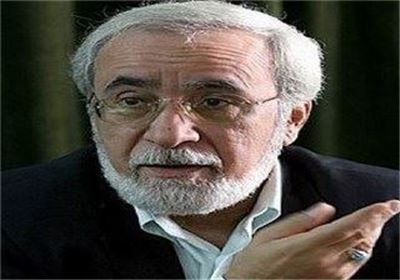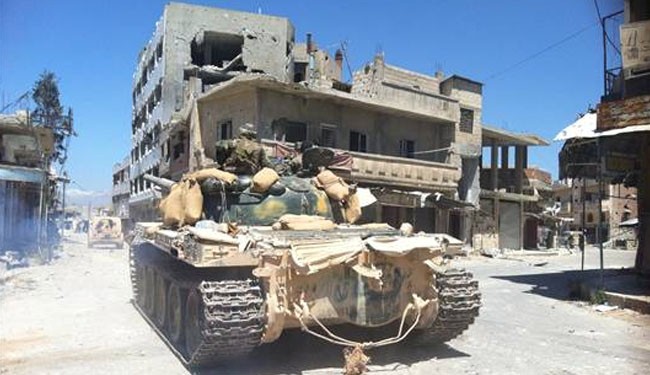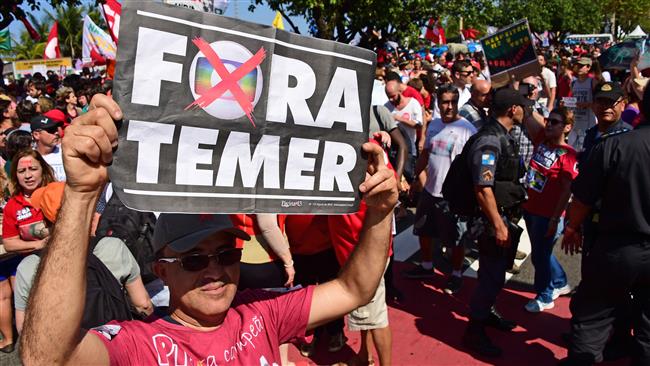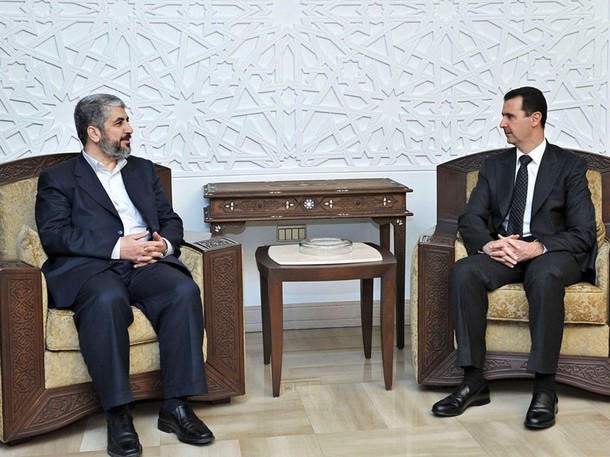Syria in the Last 24 Hours: Army Makes Major Advances in Aleppo
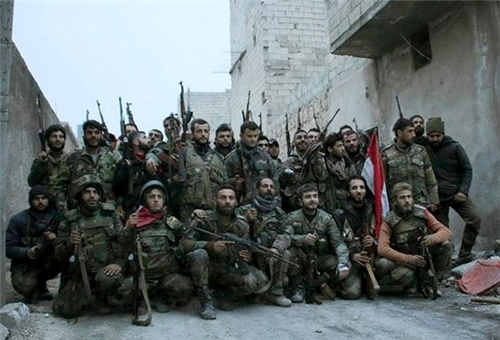
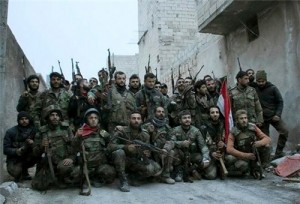 The Syrian army made major advances in Aleppo countryside in the Northern parts of the Muslim country in the last 24 hours.
The Syrian army made major advances in Aleppo countryside in the Northern parts of the Muslim country in the last 24 hours.
The army units continued their advances in Al-Sheikh Najjar industrial city in Aleppo countryside.
Several groups of militants have been seen to escape the area.
Early dispatches also reported some resistance in limited spots, but the army now has the industrial city under control.
Also in the past 24 hours, the Syrian army targeted the militants’ gathering centers along the international Damascus-Aleppo highway.
The army units hit the terrorists’ concentration centers near Maaret Al-Naman and Khan Sheikhoun areas along Damascus-Aleppo international highway.
Elsewhere, the Islamic State of Iraq and the Levant (ISIL) fiercely clashed with its rival Al-Nusra Front near borders with Iraq.
The ISIL and Al-Nusra Front heavily clashed in Albou Kamal region near Syria’s borders with Iraq.
Meantime, an explosion believed to have been caused by a car bomb tore through a Syrian refugee camp at a border post on the frontier with Turkey, killing at least 24 people, Turkish media said.
Ambulances ferried the injured from the refugee camp to the Southern Turkish city of Kilis on Thursday, where a state hospital official said at least 40 people were being treated.
A Turkish border official said the blast near Turkey’s Oncupinar border post, which sits opposite the Syrian Bab al-Salameh gate, could be felt several kilometers (miles) away, but that the border gate remained open.
Also, Syrian Minister of Culture Lubanah Mshaweh urged the relevant international organizations to actively help Syria protect Aleppo citadel from the attacks of terrorists and keep the old city and its cultural heritage sites away from the current events in Syria.
The Minister, in a statement, referred to the need for cooperation with the Syrian government to rescue what has been remained of historic features in Aleppo.
Syria has been experiencing unrest since March 2011 with organized attacks by well-armed terrorists and militants against the Syrian army and civilians across the country.
Thousands of people have been killed since terrorist and armed groups turned protest rallies into armed clashes.
The government blames outlaws, saboteurs, and armed terrorist groups for the deaths, stressing that the unrest is being orchestrated from abroad.
In October 2011, calm was almost restored in most parts of the Arab state after President Assad started a reform initiative in the country, but Israel, the US and its Arab allies brought the country into chaos through every possible means. Tel Aviv, Washington and some Arab capitals have been staging various plots in the hope of increasing unrests in Syria.
The US daily, Washington Post, reported in May, 2012 that the Syrian rebels and terrorist groups battling Assad’s government have received significantly more and better weapons in recent weeks, a crime paid for by the Persian Gulf Arab states and coordinated by the United States.
The newspaper, quoting opposition activists and US and foreign officials, reported that Obama administration officials emphasized the administration has expanded contacts with opposition military forces to provide the Persian Gulf nations with assessments of rebel credibility and command-and-control infrastructure.
According to the report, material was being stockpiled in Damascus, in Idlib near the Turkish border and in Zabadani on the Lebanese border.
Opposition activists who several months ago said the rebels were running out of ammunition said in May that the flow of weapons – most bought on the black market in neighboring countries or from elements of the Syrian military in the past – has significantly increased after a decision by Saudi Arabia, Qatar and other Persian Gulf states to provide millions of dollars in funding each month.

